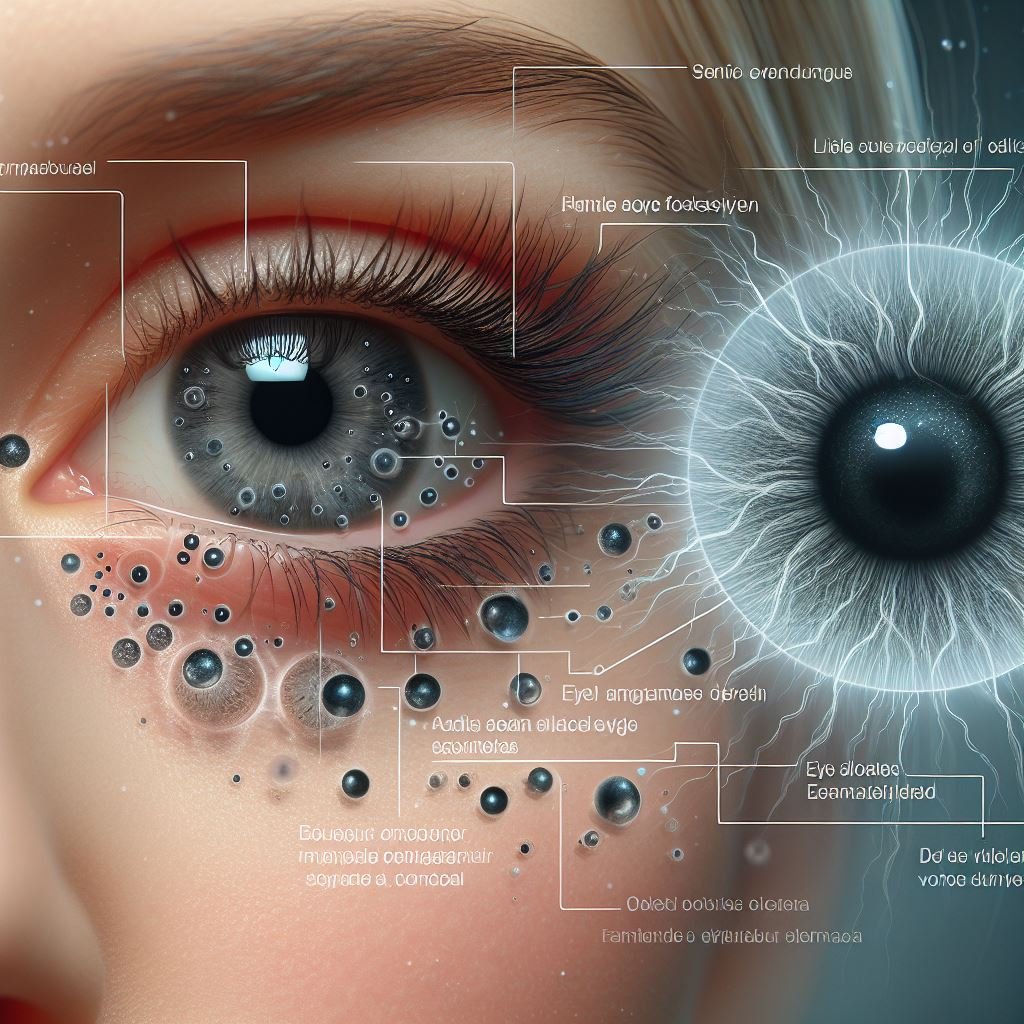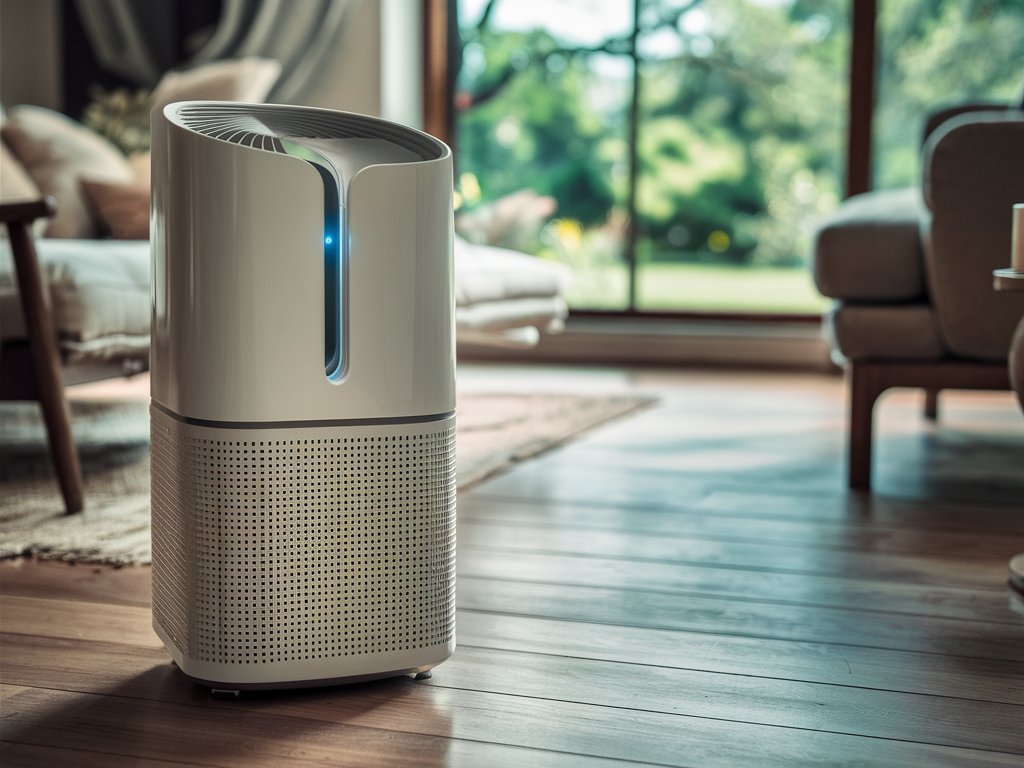
Can Allergy Cause Eye Floaters?
Eye floaters, those small, shadowy figures that drift through our field of vision, often catching the eye as they glide or dart away when we try to focus on them, are a common visual phenomenon experienced by many. Typically characterized by their fleeting, cobweb-like appearance, floaters can range from mildly distracting to significantly impairing vision, depending on their size and number. While they are generally associated with natural aging processes or certain eye conditions, there’s growing curiosity about the potential impact of other health factors on their occurrence. Among these, allergies—a condition affecting millions worldwide—pose an intriguing question: Can allergies cause eye floaters? This article delves into the relationship between allergies and eye health, specifically exploring the connection, if any, between allergic reactions and the development of eye floaters, guided by medical insights and research.
Understanding Eye Floaters
Eye floaters are essentially small pieces of debris that float in the vitreous humor, the gel-like substance filling the eye. These pieces cast shadows on the retina, and the light-sensitive tissue at the back of the eye, and these shadows are what we perceive as floaters. They can appear as dots, lines, cobwebs, or blobs that drift about when you move your eyes and seem to dart away when you try to look at them directly.
Causes of Eye Floaters
Most commonly, eye floaters result from age-related changes in the vitreous humor. As we age, the vitreous partially liquefies and can separate from the retina, a process known as posterior vitreous detachment (PVD), which is very common and not usually sight-threatening. During this separation, the debris within the vitreous can become more noticeable, leading to the perception of floaters.
Other causes of eye floaters include:
- Inflammation in the back of the eye (uveitis) can release inflammatory debris into the vitreous.
- Bleeding in the eye from conditions such as diabetic retinopathy can introduce blood cells into the vitreous, appearing as floaters.
- A torn retina, which can occur with a sudden increase in floaters, is often accompanied by flashes of light, signaling a medical emergency.
The Visual Impact of Floaters
For most people, eye floaters are more of an annoyance than a serious threat to vision. They often become less noticeable with time as the brain learns to ignore them. However, a sudden increase in floaters, especially when accompanied by light flashes or any loss of peripheral vision, should prompt immediate medical attention, as these could be signs of retinal detachment.
Understanding the nature and common causes of eye floaters sets the foundation for exploring the potential link between allergies and this visual phenomenon, providing context for why and how floaters occur in the general population.
Allergies and Eye Health
Allergies can significantly impact eye health, manifesting symptoms that affect comfort, vision, and overall eye functionality. When the immune system overreacts to a foreign substance—such as pollen, dust mites, or pet dander from cats and dogs—it triggers an allergic response. This response can lead to various ocular symptoms, highlighting the intricate relationship between allergies and the eyes.
Common Ocular Symptoms of Allergies
- Itching: One of the hallmark signs of ocular allergies, causing discomfort and an irresistible urge to rub the eyes.
- Redness: Allergic reactions can cause the blood vessels in the eyes to expand, leading to a noticeable redness.
- Watering: To flush out allergens, eyes may produce excess tears, resulting in watery eyes.
- Swelling: Eyelids may swell due to inflammation triggered by an allergic response.
These symptoms are primarily associated with allergic conjunctivitis, an inflammation of the conjunctiva, the mucous membrane covering the front of the eye, and the eyelids inside. Allergic conjunctivitis is a common condition, especially during high pollen count.
The Immune Response and Its Impact on the Eyes
The immune response initiated by an allergen involves the release of histamines and other chemicals designed to combat the perceived threat. While these mechanisms serve a protective role, they can also lead to inflammation and discomfort in sensitive tissues, including those in the eyes. This inflammatory response can exacerbate existing eye conditions and, in theory, might influence the occurrence of eye floaters, particularly if the inflammation affects the vitreous humor or surrounding eye structures.
However, the direct connection between allergies and the development of eye floaters could be clearer. While allergies can lead to symptoms that affect the front of the eye (such as itching and redness), eye floaters typically result from changes in the vitreous humor in the back of the eye. The next section will investigate whether allergies can cause eye floaters based on medical research and expert opinions.
Can Allergies Cause Eye Floaters?
Returning to whether allergies can directly cause eye floaters involves understanding the mechanisms behind both conditions. While allergies significantly affect eye health, particularly through symptoms like itching, redness, and watering, their direct impact on the formation of eye floaters is less evident.
The Connection Between Allergies and Eye Floaters
- Indirect Effects: Allergies primarily influence the front part of the eye, causing conjunctivitis and irritation. There’s no direct pathway through which the typical allergic response would cause the vitreous humor in the back of the eye to produce floaters. However, severe allergic reactions leading to significant eye rubbing or inflammation might indirectly affect the vitreous, potentially contributing to floater visibility.
- Inflammation: In some cases, allergies can cause inflammation within the eye (uveitis), particularly in the uvea, which encompasses the iris, ciliary body, and choroid. While uveitis is more directly linked to conditions like autoimmune disorders, severe, prolonged allergic reactions may exacerbate or contribute to conditions leading to floaters, especially if the inflammation affects the vitreous.
Medical Insights
- Lack of Direct Evidence: There’s limited scientific evidence to suggest a direct link between allergies and the development of eye floaters. Most research and expert opinions indicate that floaters are more commonly associated with aging, posterior vitreous detachment, and other eye conditions unrelated to allergies.
- Expert Opinions: Eye care professionals typically do not list allergies as a direct cause of eye floaters. When patients with allergies report floaters, the examination often looks for other underlying causes or eye conditions that might be coincidental or indirectly related to allergic reactions.
Why Eye Floaters and Allergies Might Seem Connected
- Increased Awareness: Individuals suffering from allergies might be more attentive to their eye health and symptoms, leading to increased noticeability of pre-existing floaters.
- Eye Rubbing: Frequent rubbing of itchy, irritated eyes caused by allergies can temporarily increase the visibility of floaters due to the pressure and movement applied to the eye.
Can Allergy Cause Eye Floaters
While allergies can severely affect eye health and comfort, the evidence does not strongly support a direct causal relationship between allergies and the development of eye floaters. The appearance of floaters in individuals with allergies is likely coincidental or related to other eye conditions rather than the allergic reactions themselves.
For individuals experiencing new or worsening floaters, especially if accompanied by other symptoms like flashes of light or visual field loss, seeking an evaluation from an eye care professional is crucial. This ensures proper diagnosis and treatment, addressing any underlying conditions contributing to the presence of floaters.
Other Allergy-Related Eye Conditions
While allergies may not directly cause eye floaters, they can lead to several other eye conditions that affect vision and comfort. Understanding these conditions can help individuals manage symptoms effectively and seek appropriate treatment when necessary. Here are common allergy-related eye conditions:
Allergic Conjunctivitis
Red, itchy, watery eyes mark this inflammation of the conjunctiva and is one of the most common manifestations of eye allergies. It occurs when the eyes come into contact with allergens, leading to an overreaction of the immune system.
Keratoconjunctivitis
A more severe form of allergic eye disease, affecting both the cornea and conjunctiva, can lead to vision problems if not treated. Symptoms include severe itching, significant discharge, and discomfort in bright light.
Contact Dermatitis
Allergies to cosmetics, eye drops, or other substances can cause contact dermatitis of the eyelids, leading to redness, swelling, and itching around the eyes.
Managing these conditions often involves avoiding known allergens, using antihistamine eye drops, or, in more severe cases, prescription medication to control inflammation.
When to Seek Medical Advice
Recognizing when to consult a healthcare professional is vital for maintaining eye health, especially when experiencing symptoms that could indicate more than just allergies. Here’s what to look out for:
Sudden Increase in Floaters
A noticeable increase in floaters, particularly if accompanied by flashes of light or a shadow appearing in your peripheral vision, could signal a retinal tear or detachment, requiring immediate medical attention.
Persistent or Worsening Symptoms
If allergy-related eye symptoms persist despite over-the-counter treatment, or if you notice any changes in your vision, it’s important to see an eye care professional. They can assess whether your symptoms are solely allergy-related or if another condition is present.
Unfamiliar Symptoms
Any new eye symptoms that are not typical of your allergy experiences should prompt a visit to an eye doctor. Early diagnosis and treatment can prevent complications and protect your vision.
Seeking Professional Care
During your appointment, be prepared to discuss your symptoms, allergy history, and any treatments you’ve tried. An eye examination might include:
- Visual Acuity Test: To check if vision has been affected.
- Examination of the Eye’s Surface: Using a slit lamp microscope.
- Dilated Eye Exam: To examine the retina and vitreous for signs of floaters or other conditions.
The eye care professional may recommend treatment options ranging from eye drops for allergies to more specific interventions for any identified eye conditions.
Conclusion: Can Allergy Cause Eye Floaters?
While allergies can cause various eye symptoms, their direct link to eye floaters is minimal. However, the impact of allergies on overall eye health is significant, with conditions like allergic conjunctivitis affecting many. Understanding when symptoms indicate a need for professional evaluation is key to maintaining good vision and eye health. For anyone experiencing new, persistent, or worsening eye symptoms, consulting with an eye care professional is the best course of action to ensure proper care and treatment and living an allergy-free lifestyle.



